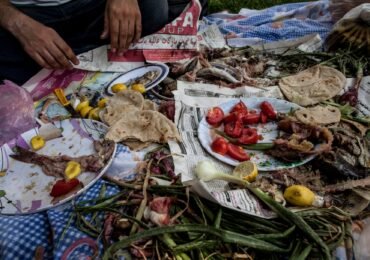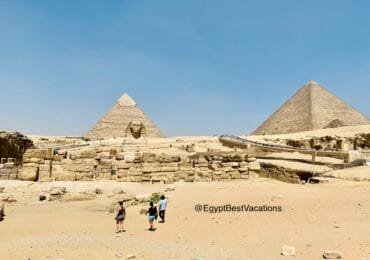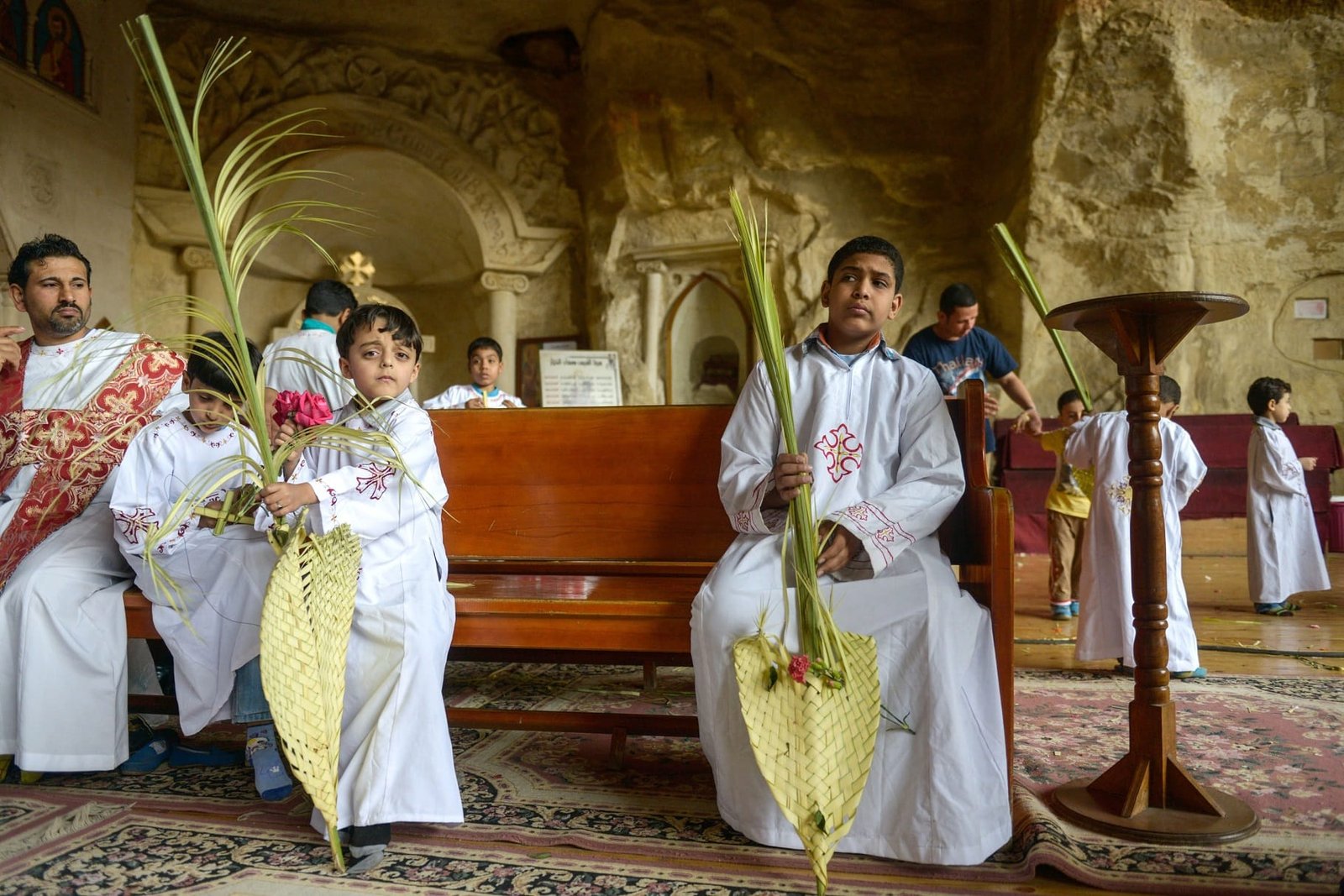Easter is a significant festival celebrated across the world, and Egypt is no exception. With its unique blend of ancient and contemporary practices, Easter in Egypt is a remarkable experience that highlights the country’s rich cultural tapestry. This festival not only reflects the deep religious roots but also showcases the diverse cultural influences that have shaped Egypt throughout centuries.
In Egypt, Easter is celebrated with a blend of traditional and modern customs, making it a dynamic event. The celebrations are a testament to the country’s ability to preserve its historical heritage while embracing contemporary influences. Whether through religious ceremonies or community gatherings, Easter in Egypt is a vivid tapestry of cultural expression.
The Historical Roots of Easter in Egypt
Easter in Egypt has a deep-seated history that intertwines with both Christian and Pharaonic traditions. The festival is not only a religious celebration but also a cultural event that brings together communities across the nation. The convergence of these traditions highlights the unique historical journey of Egypt, where ancient customs have seamlessly blended with newer religious practices.
Pharaonic Influences
Long before the advent of Christianity, the ancient Egyptians celebrated a festival called “Sham El-Nessim,” which translates to “smelling the breeze.” This spring festival marked the beginning of the harvest season and was associated with renewal and rebirth, themes that parallel those of Easter. The festival was a time when Egyptians expressed gratitude for the fertility of the land and the renewal of life, which is deeply rooted in their agricultural society.
Sham El-Nessim is still celebrated today, usually on the Monday following Easter Sunday. It’s a public holiday in Egypt and is enjoyed by people of all religions. The continuity of this tradition exemplifies how ancient cultural practices have persisted and evolved into modern celebrations, bridging the gap between past and present.
Christian Celebrations
Christianity has been present in Egypt since the first century AD, and the country is home to one of the oldest Christian communities in the world, the Coptic Orthodox Church. Easter is the most important religious event for Copts, and it is preceded by a 55-day fasting period known as the Great Lent. This period is a time for spiritual reflection and self-discipline, emphasizing the values of humility and devotion.
During this time, Copts abstain from all animal products, including meat, dairy, and eggs. The fasting period culminates in Holy Week, which is filled with prayer, reflection, and church services. These rituals reinforce the community’s faith and are an expression of solidarity and shared beliefs among the Coptic Christians.
Easter Day in Egypt
Easter Day is a time of joy and celebration for Christians in Egypt. It begins with the Easter Vigil, a night-long service on Holy Saturday, leading into the early hours of Easter Sunday. This service is marked by the lighting of candles, symbolizing the resurrection of Jesus Christ and the triumph of light over darkness. The vigil is a profound spiritual experience, uniting believers in a shared expression of faith and hope.
Church Services and Traditions

On Easter Sunday, churches across Egypt are filled with worshippers attending the Easter Mass. The service is a vibrant affair, with hymns, prayers, and sermons that reflect on the resurrection of Christ. The atmosphere in the churches is one of reverence and celebration, as the faithful gather to honor the pivotal event in Christian theology.
After the service, families gather to break their fast with a festive meal. Traditional Easter foods include “feseekh” (fermented fish), eggs, and “koulourakia” (sweet pastries). These foods hold symbolic meanings, with eggs representing new life and fish symbolizing abundance. The meal is a time for families to reconnect and celebrate their shared heritage and beliefs.
The Role of Family and Community
Easter in Egypt is very much a family-oriented holiday. It is a time for relatives to come together, share meals, and enjoy each other’s company. It’s common for families to exchange gifts and Easter eggs, which are often brightly decorated. These exchanges are a way of expressing love and appreciation, strengthening familial bonds.
Communities also come together during this time, with many participating in local events and activities. Streets and homes are adorned with decorations, creating a festive atmosphere that is enjoyed by people of all ages. These communal celebrations foster a sense of unity and belonging, transcending religious and cultural boundaries.
Sham El-Nessim: An Egyptian Spring Festival
The day after Easter Sunday, Egyptians of all faiths celebrate Sham El-Nessim. This national holiday is a unique blend of Pharaonic and modern traditions, symbolizing the unity and diversity of Egyptian society. The festival is an opportunity for Egyptians to connect with their ancient past while enjoying the vibrant present.
Traditional Foods and Activities

One of the highlights of Sham El-Nessim is the traditional picnic. Families often spend the day outdoors, enjoying the pleasant spring weather. Popular picnic foods include “feseekh,” “malana” (green onions), and colored eggs. These foods not only provide sustenance but also carry cultural significance, linking modern Egyptians to their ancestors.
In addition to picnics, there are often public events such as concerts, cultural performances, and art exhibitions. Parks and gardens become lively with families enjoying the festivities. These activities foster a spirit of community and provide a platform for cultural expression and celebration.
Symbolism and Significance
Sham El-Nessim is more than just a celebration of spring; it is a testament to Egypt’s rich cultural heritage. The festival’s origins date back to ancient Egypt and have evolved over millennia to become a cherished national holiday. Its enduring presence in Egyptian society underscores the importance of cultural continuity and adaptation.
The themes of renewal and rebirth resonate with all Egyptians, regardless of their religious beliefs. It is a day that highlights the importance of unity, community, and the shared human experience. Sham El-Nessim serves as a reminder of the interconnectedness of all people, transcending religious and cultural differences.
Easter in Egypt 2025: What to Expect
As Easter approaches in 2025, Egyptians are preparing to celebrate with the usual fervor and enthusiasm. While traditional customs remain at the heart of the festivities, each year brings new ways to engage with the holiday. This evolving nature of the celebrations reflects the dynamic character of Egyptian society, where tradition and modernity coexist.
Modern Influences and Trends
In recent years, technology and social media have played a significant role in how Egyptians celebrate Easter. Virtual church services, online egg decorating contests, and digital greeting cards have become popular, especially among the younger generation. These innovations allow for greater participation and accessibility, ensuring that everyone can join in the celebrations, regardless of geographical or physical constraints.
Additionally, there is a growing trend of incorporating global Easter traditions, such as Easter egg hunts and themed parties, into local celebrations. This blend of traditional and modern practices reflects the dynamic nature of Egyptian society. By embracing these global influences, Egyptians are enriching their cultural tapestry while maintaining their unique identity.
Travel and Tourism
Easter is also an important time for tourism in Egypt. Many visitors come to experience the unique blend of religious and cultural festivities. Popular destinations include Cairo, with its historic churches, and the coastal city of Alexandria, known for its vibrant Easter celebrations. These cities offer a glimpse into the rich history and diverse culture of Egypt, attracting tourists from all over the world.
Travelers can expect a warm welcome and an opportunity to immerse themselves in the rich traditions that make Easter in Egypt a truly memorable experience. The hospitality and warmth of the Egyptian people, combined with the country’s stunning historical sites, make it a perfect destination for those seeking a culturally enriching holiday.
Celebrate Easter with Egypt Easter Tours
Make this Easter unforgettable with our Egypt Easter Tours, offering the perfect mix of history, adventure, and relaxation.

Explore Cairo, home to the awe-inspiring Pyramids of Giza, the Egyptian Museum, and bustling Khan El Khalili bazaar. Discover Alexandria, where ancient Roman ruins meet the beauty of the Mediterranean coast. Experience the splendor of Luxor and Aswan as you wander through the Valley of the Kings, Karnak Temple, and Philae Temple. A serene Nile Cruise adds a touch of luxury to your journey.
Relax by the Red Sea, with crystal-clear waters and sandy beaches ideal for diving or unwinding. Adventure lovers can embrace the thrill of a desert safari, camping under starry skies and exploring Egypt’s breathtaking dunes. Celebrate Easter in a land of timeless wonders. Book your Egypt Easter Tour today!
Conclusion
Easter in Egypt is a celebration like no other, combining ancient customs with modern practices to create a festival that is both deeply spiritual and culturally enriching. Whether you are a resident or a visitor, experiencing Easter in Egypt is an opportunity to connect with the country’s rich history and vibrant present. The festival is a reflection of Egypt’s ability to honor its past while embracing the future.
As Easter 2024 approaches, we invite you to explore the traditions that make this holiday a cherished time for Egyptians of all backgrounds. From the solemnity of the Easter Vigil to the joyous picnics of Sham El-Nessim, there is something for everyone to enjoy and appreciate. This celebration is a testament to the enduring spirit of the Egyptian people and their commitment to preserving and celebrating their unique cultural heritage.

